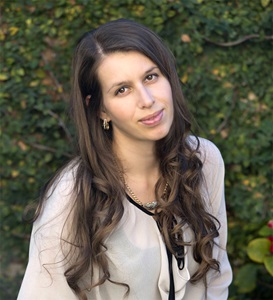Tylor describes his cybersecurity journey from the White House to Northrop Grumman.
Countering Cyber Threats on the Night Shift
By Phillip Wirtz and Elysia

Elysia had plans to be a lawyer. After graduating college in 2012, she worked for the Maryland State's Attorney's Office and two law firms before deciding instead to pursue a newfound interest in cybersecurity.
"In a field like cybersecurity, nothing stands still or remains the same," Elysia said. "Tech is constantly evolving, and so are the cybersecurity threats and actors involved."
Elysia enrolled in a cybersecurity master's degree program and landed a job in information assurance, working as a Department of Defense contractor.
Today, Elysia is a cyber intelligence analyst and shift supervisor on the night shift — known as the third shift — for Northrop Grumman's Cyber Security Operations Center (CSOC). CSOC analysts work 24/7 to protect the company's networks and data through intelligence gathering, threat detection, incident response, digital forensics and security monitoring. At work, Elysia's "morning" — the start of her shift — is 10:00 p.m., most people's late night.
Throughout the shift, Elysia reviews emails that may contain suspicious attachments or links to the CSOC to review and determine if the content is non-malicious. Occasionally, an employee will contact the CSOC to report suspicious activity. Elysia and her team respond to these types of inquiries as part of their daily network monitoring activities.
Most investigations last only a few minutes, but others can take hours. If malicious cyber activity is confirmed, Elysia will document her findings and engage others in Cybersecurity to ensure that threats are mitigated. A network attack could cause serious material, economic or reputational harm to the company and is a high-priority event for Elysia and her colleagues.
Thorough investigations not only protect the company network but also enable other facets of Information Security to focus on their respective missions.
Although she's awake when most people sleep, Elysia still has time to meet up with friends and family or get in a workout in the evenings. Elysia works four shifts a week and has three days off, a schedule that helps her rest and recharge.
Here is a typical day from Elysia's point of view.
10 p.m. Good morning! I mean evening. Time for coffee and for my shift to begin. I send virtual "hellos" to the on-shift crew and fellow third-shift team members, then dive into my inbox. I then review any recent intelligence briefs and threat reports, ticketed alerts from previous shifts and team bulletin boards for updates.
Midnight. Our close-knit team maintains constant collaboration throughout the shift when events pop up.
3 a.m. Break for more coffee! Some evenings the third shift is relatively quiet and routine, but we are always prepared to investigate and make sure our network is operating as intended. I really enjoy the investigation process, pivoting across software tools and consoles to get a full picture of events and determine exactly what is going on.
6 a.m. As the U.S. East Coast begins to wake up, I have one hour left of monitoring the boards before the first shift takes over. I wrap up my analysis to share with my colleagues; I compile a daily ticket log. I also prepare hand-off notes for the next shift and respond to any outstanding inquiries in the CSOC mailbox.
8 a.m. My dogs are usually howling at me for breakfast, and I'm ready to wind down for my evening (even though the sun's shining outside). I clock out, feed them and head to bed. Sleeping during the day has its challenges, but there's nothing that blackout curtains and earplugs can't fix.
Life at Northrop Grumman
Your work at Northrop Grumman makes a difference. Whether you want to design next-generation aircraft, harness digital technologies or build spacecraft that will return humanity to the moon, you’ll contribute to technology that’s transforming the world. Check out our career opportunities to see how you can help define possible.


